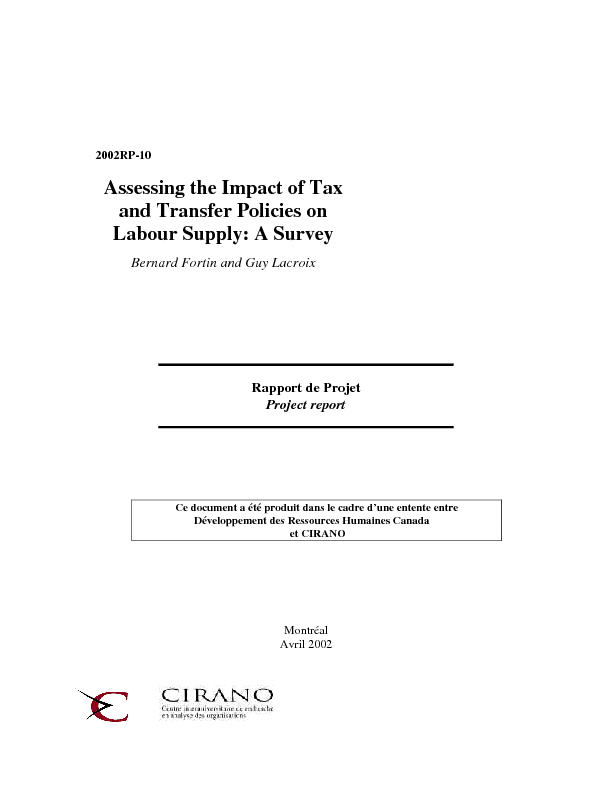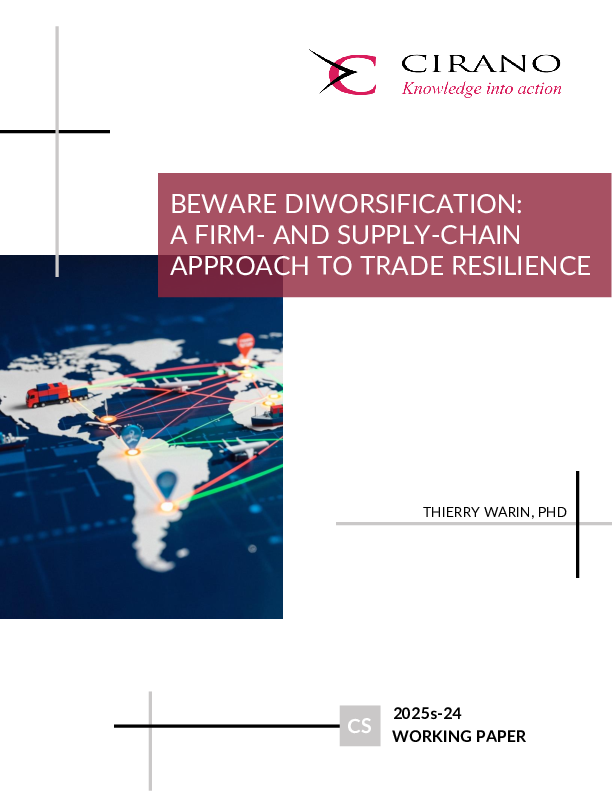Assessing the Impact of Tax and Transfer Policies on Labour Supply: A Survey
Changes in parameters of tax and transfer programs can induce individuals to alter their behaviour in a wide variety of ways, including changes in labour supply, in the nature of employee compensation, in the choice of working in the underground economy, in savings decisions, in human capital investments and in fertility decisions. The magnitude of these responses is of critical importance in the formulation of adequate tax and transfer policies. Thus the behavioural effects of income taxes and those implicit in means-tested transfer programs may strongly influence the impact of these policies on income, tax receipts, budgetary costs and welfare. In this paper, we abide with the tradition of evaluating the impact of tax and transfer programs on labour supply at both the extensive (the decision to work or not) and the intensive margins (the number of hours worked). We provide both a theoretical and empirical survey of the labour supply impact of tax and transfer programs. An important part of the empirical results discussed in this paper focuses on the labour supply impact of tax and transfer reforms that occurred in the US, in the UK and in Canada.
[ - ]




